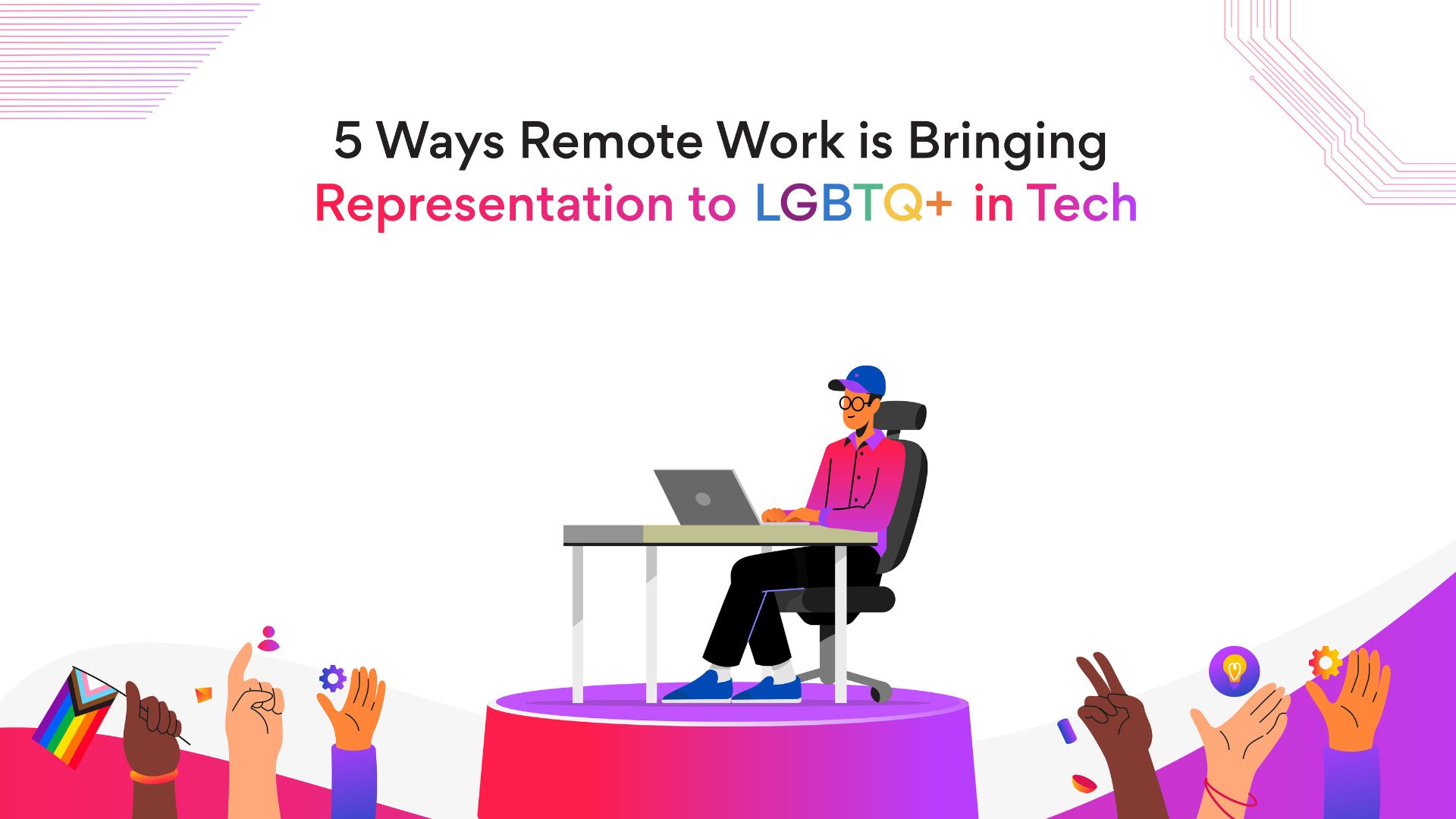Remote Work Boosts Productivity & Innovation, Say Multiple Studies
Several tech giants like Qualcomm, Lenovo, and Google have shared that remote work boosted productivity. A study published in the MIT Sloan Management Review revealed that remote work developed big-picture thinking in employees and made them more creative. Yet another found that empowered remote workers led to more innovation.
Additional findings:
Remote work spurs productivity and innovation
Qualcomm and Lenovo said they saw a rise in productivity after going remote. The former even added they filed more patents during the pandemic than ever before.
A report published in MIT Sloan studied 1,000 remote innovation leaders across 17 countries to understand how innovations occurred. The analysis revealed that the companies with a radically progressive approach to remote work saw increased innovation, leading to better employee and customer outcomes. These companies, referred to as “stormers” in the report, were some of the best industry innovators. The report also revealed that the constraints of remote work led to more creativity among employees.
The other report showed that remote employees are more innovative because virtual communication, paired with the perception of being distant, activates the higher-construal thought process, also known as big-picture thinking. Thus, remote workers develop big-picture thinking because of virtual collaborations.
The empowerment of remote employees promotes innovation
Ninety-four percent of stormers said replacing the command-and-control structure with a culture focused on customer-facing teams helped them perform better. It gave them more autonomy while serving customer needs. This approach transformed customer communication and provided a sense of purpose to employees. What’s more, it also increased customer loyalty by 62 percent for stormer organizations.
The report also revealed that entrusting remote employees with customer relationships led to innovation. Ninety-one percent of stormer workforces said they enjoyed the recognition their work received through this approach. It motivated them to innovate further. As a result, 96 percent of stormers prioritized self-empowerment over leadership.
Remote work demands intelligent technology, connectivity, and consistency
Qualcomm and Lenovo shared that connectivity and high-quality technology are crucial to support the shift to remote work. They said that having access to the correct devices and connectivity led to greater output.
Meanwhile, 84 percent of innovators said they could maintain their work-life balance and prevent burnout by sticking to a consistent schedule. They also shared that establishing transparent communication systems within teams was essential for maintaining this balance. In addition to this, virtual lunch breaks engaged remote employees in casual conversation that helped build bonds across teams.
Brainwriting, bias elimination, and minimal production blockers can maximize virtual productivity
- Reduce production blockers: Production blockers can hamper creative thinking. Frequent conversations with the team, for example, can act as a production blocker for an employee. Setting aside time for individual work away from the shared screen can help in limiting such blocks and increasing productivity.
- Practice brainwriting: Encourage employees to write down their ideas and discuss them together. Brainwriting fixes the flaws of brainstorming by eliminating self-censorship and promoting honest criticism. Virtual communication is ideal for brainwriting because participants can contribute to a shared document without group influence.
- Amplify individual input through virtual platforms: Virtual platforms allow only one person to talk at a time. Thus, they make it easier for less vocal participants to share their views. Most importantly, they serve as records of information, allowing organizations to go over previously discussed ideas.
- Eliminate bias and encourage diverse interactions: People evaluate ideas from colleagues more harshly than those from outsiders. Anonymity helps in evaluating ideas without prejudice. Similarly, conversations between different team members bring diverse perspectives and stimulate creativity.
Turing is an automated platform that lets companies “push a button” to hire and manage senior, pre-vetted remote software developers. Firms can hire from a global talent pool of top 1% of 700K+ developers with strong technical and communication skills who work in their time zone.
For more information, visit Turing’s Hire page.
Tell us the skills you need and we'll find the best developer for you in days, not weeks.












